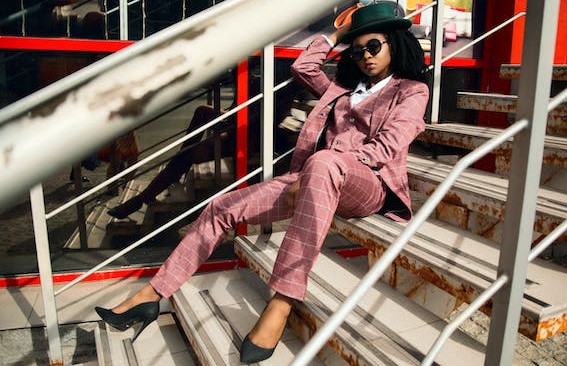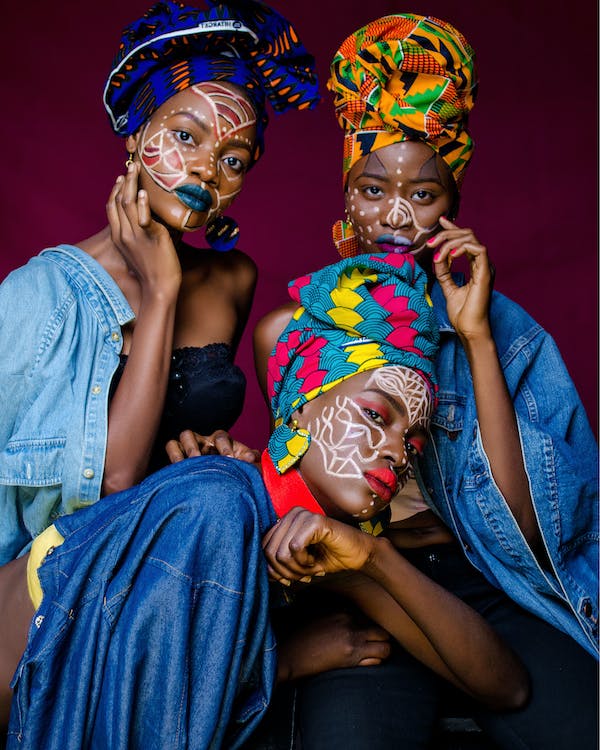
October 10 is World Mental Health Day so we are today exploring the interplay between fashion and mental health. On both the positive and adverse effects, we pull back the curtains on the power fashion holds in regard to one’s mental health.
Fashion is not merely about the clothes we wear; it is an expression of our individuality, creativity, and self-confidence. While fashion has long been associated with physical appearance, it also plays a significant role in our mental well-being. In recent years, the relationship between fashion and mental health has garnered attention, shedding light on how our clothing choices can impact our emotional state and overall mental well-being.
“Never use the world ‘cheap’. Today everybody can look chic in inexpensive clothes (the rich buy them too). There is good clothing design on every level today. You can be the chicest thing in the world in a T-shirt and jeans – it’s up to you.”
Karl Lagerfeld
The way we dress can influence our self-esteem, confidence, and mood. Wearing clothes that make you feel good can boost your self-confidence and contribute to a positive self-image, which can have a positive impact on mental health. Additionally, some individuals use fashion as a form of self-expression and creativity, which can be therapeutic.

On the other hand, issues related to body image and societal pressures to conform to certain fashion standards can also negatively affect mental health. So, while fashion can be a source of empowerment and self-expression, it can also be a source of stress for some individuals.
This article explores the intricate connection between fashion and mental health, unveiling the ways in which fashion can influence our mood, self-esteem, and body image.
5 ways that fashion and mental health connect
Self-expression and identity
Fashion acts as a powerful tool for self-expression and identity formation. The clothes we choose to wear can reflect our personality, values, and emotions. By selecting outfits that align with our inner selves, we can boost our self-confidence and enhance our sense of identity. Conversely, feeling pressured to conform to societal standards can lead to feelings of self-doubt and anxiety.
The Influence of colour and style
Colours have a profound impact on our emotions and mental state. Fashion allows us to harness the psychological effects of color, enabling us to choose hues that evoke positive emotions and improve our mood. Similarly, different styles and silhouettes can influence our body image and self-perception. Wearing clothes that make us feel comfortable and confident can enhance our mental well-being.

The role of fashion in self-esteem
Fashion can significantly impact our self-esteem. When we feel good about our appearance, it positively affects our self-confidence and overall mental health. Conversely, negative body image and dissatisfaction with our appearance can lead to low self-esteem and even contribute to mental health disorders such as depression and anxiety. Recognizing the importance of body positivity and promoting inclusive fashion can help individuals develop a healthier relationship with their bodies and improve their mental well-being.
“A respectable appearance is sufficient to make people more interested in your soul.”
Karl Lagerfeld
Fashion as a form of self-care
Engaging in fashion-related activities can serve as a form of self-care. Taking the time to select outfits, experiment with different styles, and engage in grooming rituals can provide a sense of control, creativity, and relaxation. This mindful approach to fashion can contribute to improved mental health by fostering self-expression and self-compassion.
The influence of the fashion industry
The fashion industry itself has a role to play in promoting positive mental health. By embracing diversity, challenging beauty standards, and promoting body positivity, the industry can contribute to a more inclusive and mentally healthy society. However, it is crucial to address the negative impacts of the industry, such as promoting unrealistic body ideals and fostering consumerism, which can negatively affect mental health.
Fashion and mental health are intricately intertwined, with clothing choices impacting our mood, self-esteem, and overall well-being. By recognizing the power of fashion as a tool for self-expression, self-care, and self-esteem, individuals can harness its positive effects on mental health. Furthermore, promoting body positivity and inclusivity within the fashion industry can contribute to a more mentally healthy society, where everyone can feel confident and comfortable in their own skin.

